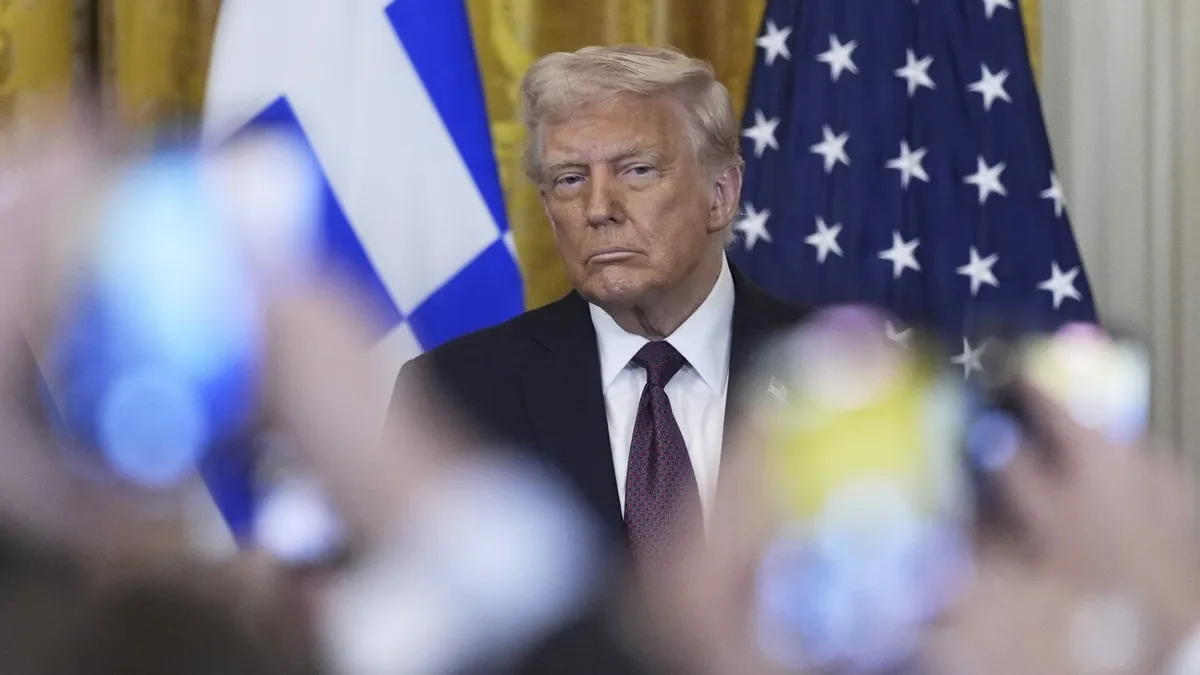
The recent security breach involving President Donald Trump and his administration has raised eyebrows, particularly in light of their past reactions to Hillary Clinton's use of a private email server during her time as Secretary of State. This breach revealed sensitive military strike plans in a Signal group chat that included journalist Jeffrey Goldberg, the editor-in-chief of The Atlantic. Instead of focusing on the potential security risks or punishments, the Trump administration has directed its criticism towards Goldberg, highlighting a significant shift in their approach to handling sensitive information.
During the Clinton email controversy, concerns were raised about the security of her private server and the risk of sensitive information falling into the wrong hands. However, former FBI Director James Comey stated that there was no evidence that Clinton's email account had been hacked. In contrast, as Trump insisted that no classified information was shared in the recent Signal chat, Goldberg contested this by stating that the messages disclosed “precise information about weapons packages, targets, and timing” of military strikes in Yemen. The White House's National Security Council has since announced that it is investigating the matter.
Clinton's reaction to Goldberg's findings was one of disbelief, as she expressed on social media, "You have got to be kidding me," highlighting the apparent hypocrisy in the administration’s handling of sensitive information.
In a meeting with ambassadors at the White House, Trump downplayed the security breach, stating, “The main thing was nothing happened. The attack was totally successful.” He praised his national security adviser, Michael Waltz, for his performance, labeling Goldberg a “total sleazebag” and asserting that the incident was misrepresented. In an interview with Newsmax, Trump elaborated that he felt “very comfortable” with the situation, despite the controversy surrounding the leaked information.
In stark contrast, during the 2016 presidential campaign, Trump frequently criticized Clinton, stating, “Hillary is the one who sent and received classified information on an insecure server,” and accused her of putting national security at risk. He emphasized that the legal system failed to prosecute her for actions that endangered the public, illustrating a clear double standard in the treatment of sensitive information disclosures.
Waltz, who leads the National Security Council, defended the incident by asserting that “there’s a lot in the lessons for a lot of journalists” and took responsibility for the group chat's composition. He acknowledged the mistake but downplayed its significance, stating, “We’re moving forward.” This stands in stark contrast to his previous comments about Clinton's email practices, where he questioned how she could delete thousands of emails without consequence.
Defense Secretary Pete Hegseth also downplayed the breach, claiming, “Nobody was texting war plans.” This is a notable shift from his past statements, where he argued that any security professional would face severe consequences for mishandling sensitive information like Clinton did.
Other officials involved in the Signal group chat, including Marco Rubio and Stephen Miller, have remained silent regarding the recent breach. In the past, Rubio emphasized that “nobody is above the law, not even Hillary Clinton,” while Miller highlighted the dangers posed by unsecured communications.
CIA Director John Ratcliffe defended his communications in the Signal group, asserting they were lawful and did not contain classified information, a claim that echoes his past calls for accountability regarding sensitive information handling. Meanwhile, Tulsi Gabbard distinguished between inadvertent and malicious leaks, underscoring the need for legal ramifications for any unauthorized release of classified information.
The contrasting responses from Trump and his administration regarding the recent Signal group chat leak versus the scrutiny faced by Clinton’s email practices highlight a significant discrepancy in accountability standards. As investigations continue, the implications of this breach on national security and public trust remain to be seen.